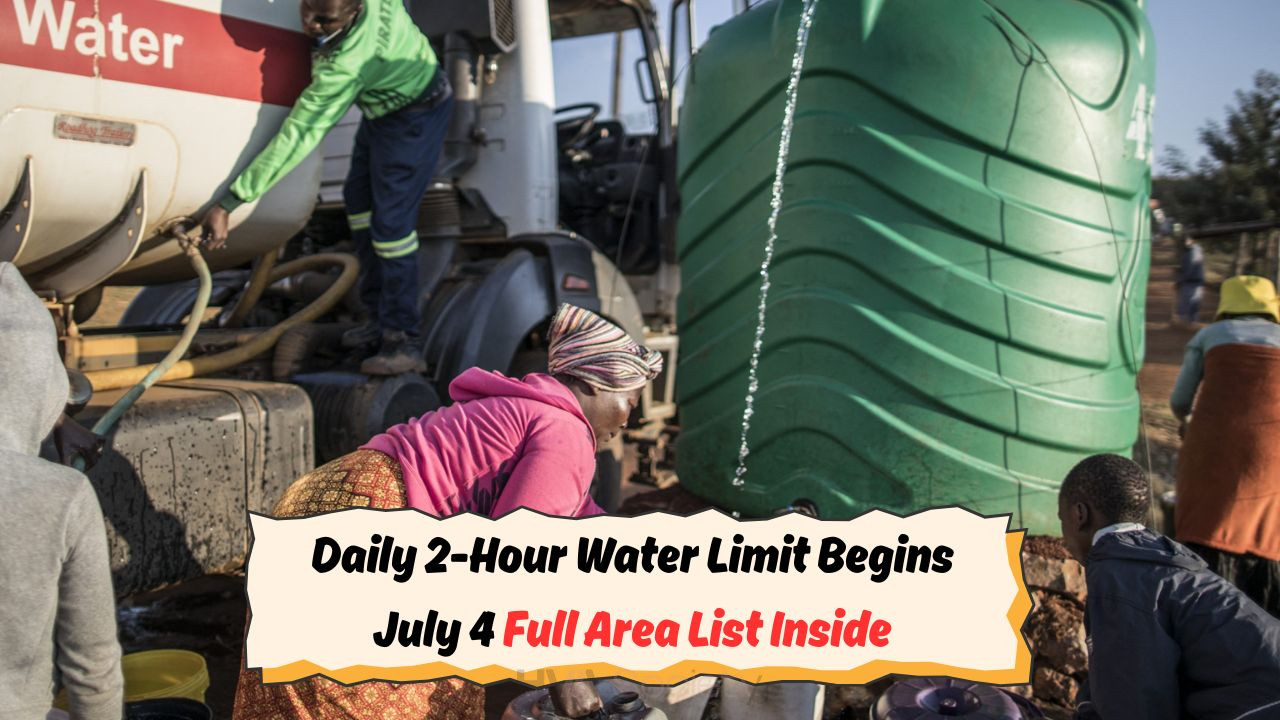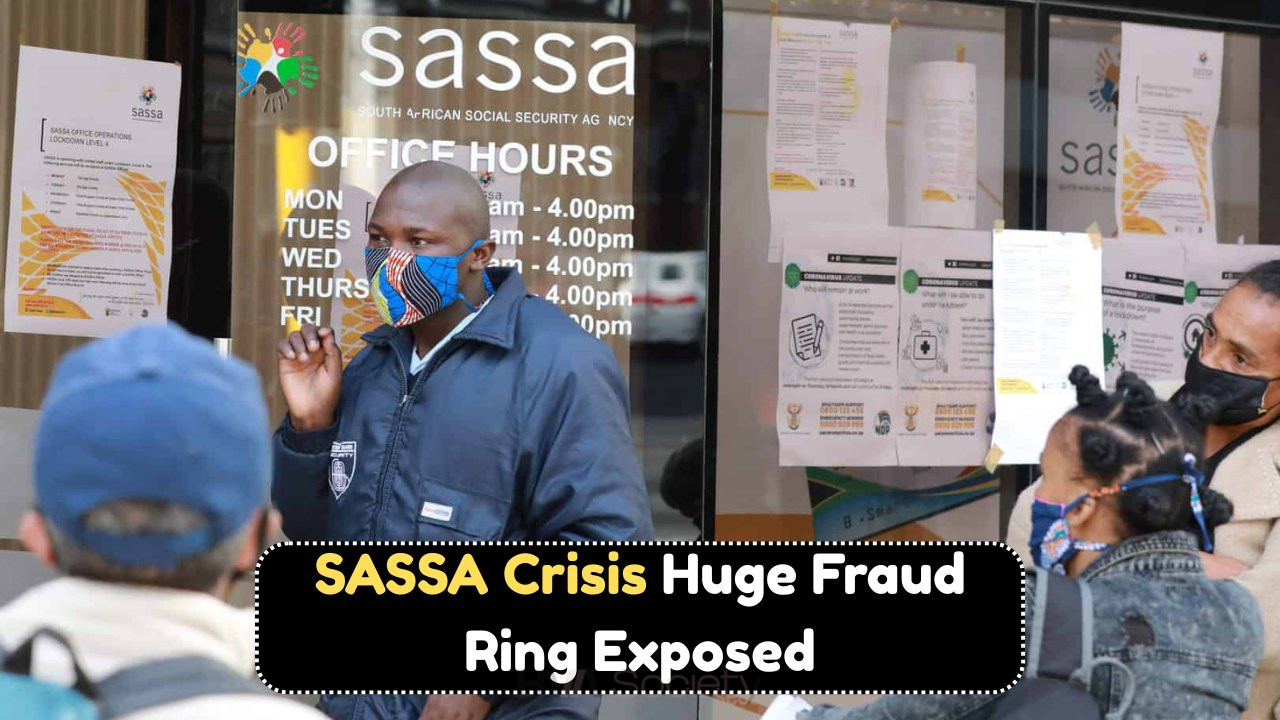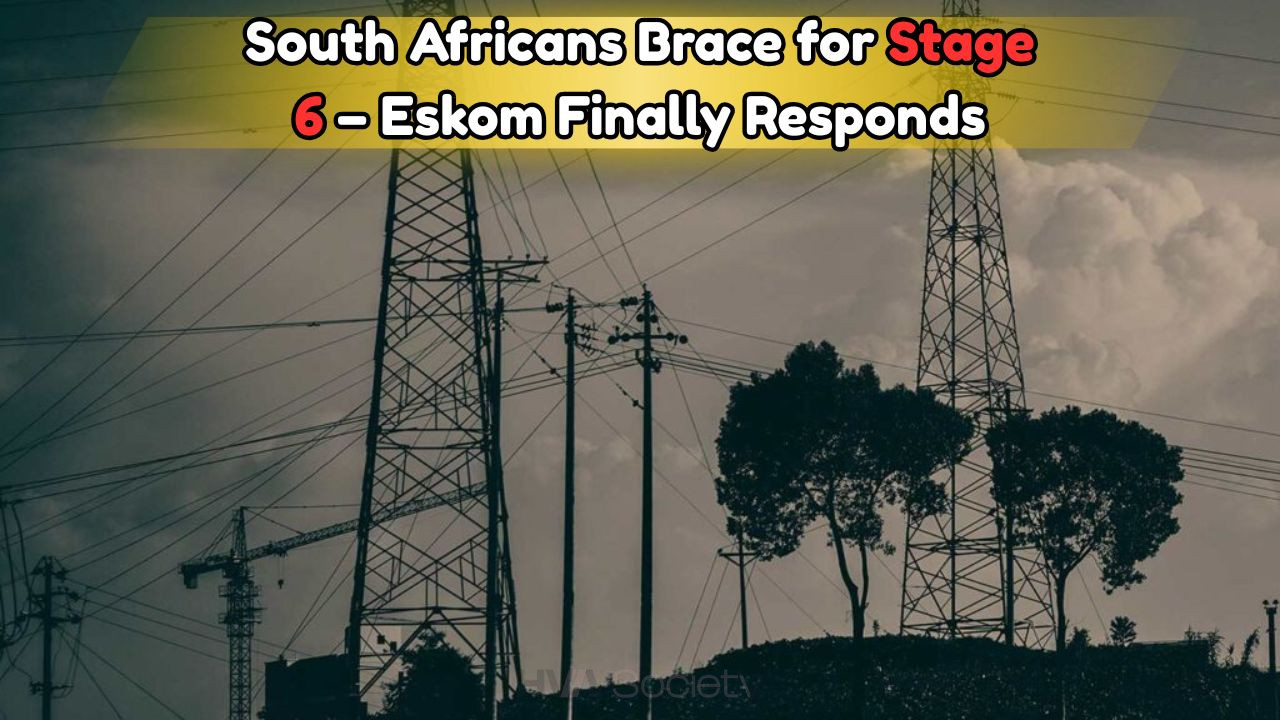Eastern Cape Water Shortage Crisis: The Eastern Cape is facing a significant water shortage crisis, prompting authorities to commence water rationing starting July 4th. This measure comes as a response to the ongoing drought conditions that have plagued the region, exacerbated by climate change and increasing demand. Residents are urged to prepare for the impact on daily life, as water restrictions are set to become a part of everyday reality. The government and local municipalities are working tirelessly to manage the limited resources, but it is crucial for communities to adopt water-saving practices to mitigate the effects of this crisis.
Understanding the Water Shortage in Eastern Cape
The Eastern Cape has long been susceptible to water scarcity due to its geographical and climatic conditions. The current drought, however, has intensified the situation, leaving many dams at critically low levels. Factors contributing to this crisis include prolonged dry spells, reduced rainfall, and increased water consumption due to population growth. The combination of these elements has created a perfect storm, threatening the availability of potable water for both urban and rural communities. As water levels continue to dwindle, it is imperative for residents to understand the severity of the situation and the necessity for immediate action.
- Population growth has led to increased water demand.
- Climate change has altered rainfall patterns, reducing supply.
- Infrastructure challenges exacerbate the water distribution problem.
- Community awareness and participation are crucial in conservation efforts.
- The government is implementing emergency measures to address the crisis.
How Water Rationing Will Affect Residents
Water rationing will inevitably impact daily life for Eastern Cape residents. With scheduled water cuts, households will need to adapt to limited access to water, affecting everything from cooking to sanitation. Businesses, particularly those reliant on water-intensive processes, will also face challenges. It is vital for individuals and organizations to develop strategies to cope with these changes. The government is providing guidelines and support to help communities adjust, but proactive measures at the individual level are equally essential.
| Day | Time Slot 1 | Time Slot 2 | Time Slot 3 | Time Slot 4 | Time Slot 5 | Time Slot 6 |
|---|---|---|---|---|---|---|
| Monday | 06:00-08:00 | 10:00-12:00 | 14:00-16:00 | 18:00-20:00 | 22:00-00:00 | 02:00-04:00 |
| Tuesday | 06:00-08:00 | 10:00-12:00 | 14:00-16:00 | 18:00-20:00 | 22:00-00:00 | 02:00-04:00 |
| Wednesday | 06:00-08:00 | 10:00-12:00 | 14:00-16:00 | 18:00-20:00 | 22:00-00:00 | 02:00-04:00 |
| Thursday | 06:00-08:00 | 10:00-12:00 | 14:00-16:00 | 18:00-20:00 | 22:00-00:00 | 02:00-04:00 |
| Friday | 06:00-08:00 | 10:00-12:00 | 14:00-16:00 | 18:00-20:00 | 22:00-00:00 | 02:00-04:00 |
| Saturday | 06:00-08:00 | 10:00-12:00 | 14:00-16:00 | 18:00-20:00 | 22:00-00:00 | 02:00-04:00 |
| Sunday | 06:00-08:00 | 10:00-12:00 | 14:00-16:00 | 18:00-20:00 | 22:00-00:00 | 02:00-04:00 |
Community Strategies for Managing Water Shortage
Communities across the Eastern Cape are being encouraged to adopt various strategies to cope with the water shortage. From household water-saving tips to community-wide initiatives, every effort counts in offsetting the crisis. Simple actions such as fixing leaks, using water-efficient appliances, and collecting rainwater can make a significant difference. On a larger scale, community gardens and greywater recycling projects can contribute to sustainable water management. Collaboration between residents, local authorities, and NGOs is key to implementing effective solutions.
 SASSA Announces Early July–August Grant Payments and Bonus Payouts for Eligible Beneficiaries!
SASSA Announces Early July–August Grant Payments and Bonus Payouts for Eligible Beneficiaries!
- Install low-flow showerheads and taps to reduce water use.
- Collect rainwater for gardening and non-potable uses.
- Engage in community awareness campaigns on water conservation.
- Participate in local water-saving initiatives and projects.
- Support government policies aimed at improving water infrastructure.
Government Measures to Combat Water Crisis
The South African government, along with local municipalities, is actively working to address the water shortage crisis in the Eastern Cape. Emergency measures include the deployment of water tankers to affected areas, drilling of additional boreholes, and the implementation of stricter water usage regulations. Investments in infrastructure upgrades are being prioritized to improve water distribution and reduce wastage. Furthermore, public awareness campaigns are underway to educate citizens on the importance of conserving water and adhering to rationing schedules. These efforts aim to stabilize the water supply and ensure long-term sustainability.
- Deployment of water tankers to provide relief in critical areas.
- Drilling of boreholes to access underground water sources.
- Infrastructure upgrades to enhance water efficiency.
- Public awareness campaigns on water conservation.
- Collaboration with NGOs and private sectors for resource mobilization.
Long-Term Solutions for Water Security in Eastern Cape
While immediate measures are essential, long-term solutions for water security in the Eastern Cape are equally critical. Investment in sustainable water management practices and technologies will be crucial in mitigating future crises. This includes the development of desalination plants, improvement of existing water infrastructure, and the promotion of water recycling and reuse. Encouraging agricultural practices that use water efficiently and supporting research into drought-resistant crops can also help secure the region’s water future. By adopting a comprehensive approach, the Eastern Cape can build resilience against ongoing and future water challenges.
- Invest in desalination plants for alternative water sources.
- Enhance existing water infrastructure to prevent losses.
- Promote water recycling and reuse in industries and households.
- Support research into drought-resistant agricultural practices.
- Foster partnerships for sustainable water management solutions.
Community Involvement in Managing the Water Crisis
Community involvement is pivotal in managing the water crisis in the Eastern Cape. Residents are encouraged to take an active role in conservation efforts and participate in local initiatives. By forming water committees, communities can collaborate to monitor water usage, report leaks, and advocate for necessary infrastructure improvements. Education programs can empower individuals with the knowledge and tools needed to conserve water effectively. Through collective action, communities can play a significant role in alleviating the water shortage and ensuring a sustainable future for all.
| Initiative | Description |
|---|---|
| Water Committees | Groups formed to oversee local water management and conservation efforts. |
| Education Programs | Workshops and seminars to teach water-saving techniques and raise awareness. |
| Infrastructure Reporting | Community-driven efforts to identify and report water infrastructure issues. |
| Local Conservation Projects | Projects aimed at reducing water consumption and promoting sustainability. |
| Partnership Development | Collaboration with NGOs and businesses to enhance resource mobilization. |
| Advocacy Campaigns | Efforts to influence policy changes and secure government support. |
| Resource Sharing | Community pooling of resources such as rainwater tanks and greywater systems. |
How to Prepare for Water Rationing in Eastern Cape
Preparation is key to coping with water rationing in the Eastern Cape. Residents should start by assessing their water usage and identifying areas where consumption can be reduced. Stockpiling essential water supplies, such as bottled water and non-perishable goods, can also help mitigate the impact of rationing. Creating a family or business water management plan will ensure everyone is aware of the schedule and can adjust their routines accordingly. By staying informed and proactive, individuals and communities can better manage the challenges posed by water rationing and contribute to a more sustainable future.
- Assess current water usage and identify areas for reduction.
- Stockpile essential water supplies for emergencies.
- Create a water management plan for households and businesses.
- Stay informed about rationing schedules and guidelines.
- Engage with community efforts to promote water conservation.
Impact of Water Shortage on Eastern Cape Economy
The water shortage in the Eastern Cape has far-reaching implications for the region’s economy. Agriculture, a key sector, is adversely affected, with reduced crop yields and increased costs for irrigation. Industries reliant on water-intensive processes may face production slowdowns, impacting employment and economic growth. The tourism sector, already recovering from the pandemic, may also experience setbacks as water scarcity affects infrastructure and services. To mitigate these impacts, it is crucial for businesses to adopt water-saving technologies and for the government to support sectors vulnerable to water shortages through targeted policies and incentives.
- Agricultural sector faces reduced yields and higher irrigation costs.
- Industries may experience production slowdowns and increased expenses.
- Tourism sector could see declines due to infrastructure challenges.
- Government support is essential for vulnerable sectors.
- Adoption of water-saving technologies can alleviate economic impacts.
FAQ: Eastern Cape Water Shortage Crisis
What caused the water shortage in the Eastern Cape?
The water shortage is primarily due to prolonged drought conditions, reduced rainfall, and increased demand driven by population growth.
How will water rationing be implemented?
Water rationing will involve scheduled water cuts, with specific time slots allocated for access to water throughout the week.
What can residents do to help mitigate the crisis?
Residents can conserve water by fixing leaks, using water-efficient appliances, and participating in community conservation initiatives.
How is the government addressing the water shortage?
The government is deploying water tankers, drilling boreholes, and investing in infrastructure upgrades to improve water distribution.
What are the long-term solutions for water security?
Long-term solutions include desalination plants, improved infrastructure, water recycling, and research into drought-resistant crops.








